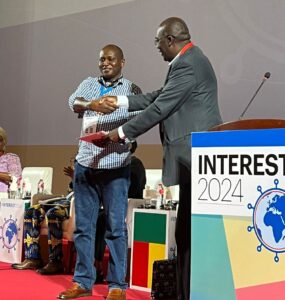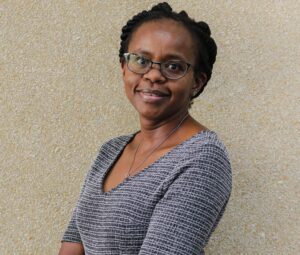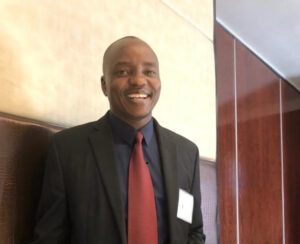Kaitesi Batamuliza Mukara is an Ear Nose and Throat (ENT) Surgeon, Audiologist and Public Health Specialist. She is the Founding Chairperson of Hearing Health Rwanda, an organization that aims to raise awareness on ear health and prevention of ear and hearing problems. Kaitesi’s dream is to have no child face challenges in achieving their greatest academic potential on the grounds of hearing loss. In this feature, the cohort four graduate tells us about her efforts in enhancing hearing care through research and practice in Rwanda. We had a chat with her and this is what she had to say.
What do you enjoy most about being an ENT practitioner?
While my day-to-day work revolves around patient care, I derive priceless satisfaction in addressing patients’ issues related to their ears or hearing be it medically, surgically, or fitting them with hearing aids. Beyond practice, I also have an interest in research that revolves around policy, advocacy, and harnessing available resources at the primary healthcare level to improve early identification, management of ear diseases, and rehabilitation of those with disabling hearing loss. It is my dream that no child will face challenges in achieving their greatest academic potential on grounds of hearing loss.
Would you say your professional practice impacts society?
I am the founder and CEO of a rapidly growing clinic in the heart of Kigali, Rwanda which prides itself as being the only facility providing comprehensive services on ear and hearing care ranging from new-born hearing screening, diagnosis, medical and surgical treatment, dispensing hearing aids and speech and language therapy. I am an ardent advocate for ear and hearing care not only at the national level but also on the international platform where I am engaged in research, training, and policy engagement.
How has your engagement with CARTA been?
When I first heard about CARTA in 2013, I was immediately drawn to the program. After a competitive application and selection process, I was enrolled in 2014 and pursued a PhD in Public health at Makerere University, Uganda. I graduated in 2021. While the journey was long, tortuous, and turbulent, it was worth every moment and energy spent. With CARTA, I have learnt to look at the world beyond the “tunnel view” perspective of diagnosis and treatment on an individual basis and instead engage with communities and institutions. This approach has proven to be far-reaching and impactful. It is through my engagement with CARTA that I found a window to amplify the plight of those with hearing impairments in my country, Rwanda.
What makes the CARTA program stand out?
I have been fortunate to attend educational facilities in different countries but none of them offer the “aftercare” that CARTA does. The program provides its affiliates opportunities right from enrolment and this continues long after graduation. Nevertheless, there are areas for improvement and room for further growth too. For instance, PhD students face many challenges on a personal level stemming from their phase in life as well as the pressures of pursuing a doctoral degree. Some of these go unnoticed and at times, some students could be left behind or even drop off in a bid to stay afloat. Platforms for social peer support should be availed to support students in their academic journey especially because resources to do so are available.
While I am not actively engaged with CARTA at the moment due to changes in my landscape of practice, every milestone I have and continue to achieve can trace origin in the CARTA spirit of growth, excellence, and the ability to brave new ventures, be it academia or other enterprises.





No Comments